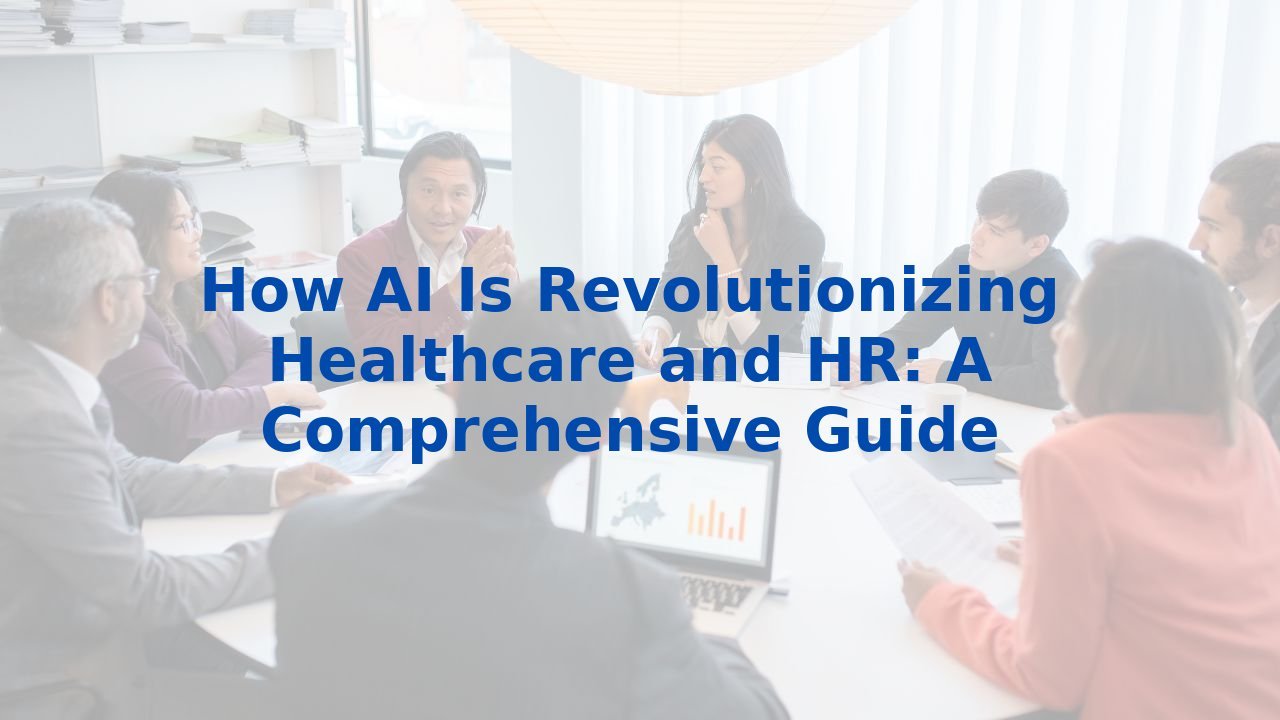How AI Is Revolutionizing Healthcare and HR: A Comprehensive Guide
How AI Is Revolutionizing Healthcare and HR: A Comprehensive Guide
Introduction
In a world where the complexities of healthcare and human resources (HR) continuously evolve, the integration of Artificial Intelligence (AI) stands at the forefront of innovation. This transformation is not merely about adopting new technology; it is about redefining the very essence of how organizations operate in these crucial sectors. Let's explore the ways AI is elevating both healthcare management and HR processes, making them more efficient and effective for everyone involved.
The Role of AI in Healthcare
As one of the most vital industries, healthcare has much to gain from AI's capabilities. Here are the transformative effects AI is having on healthcare:
- Data Analysis: AI is equipped to process vast amounts of medical data in a fraction of the time it takes human analysts. By identifying patterns and underlying trends, AI empowers healthcare professionals to catch diseases earlier and tailor treatment plans that resonate with each patient's unique condition.
- Predictive Analytics: Historical data is gold for healthcare providers. AI models can leverage this data to predict patient outcomes, thus allowing for timely interventions and smarter allocation of resources.
- Personalized Care: The one-size-fits-all approach is fading fast. AI-driven systems allow for the creation of treatment plans tailored to individual patients, thereby improving the effectiveness of treatments and increasing satisfaction levels.
AI in Human Resources
Beyond healthcare, AI is making waves in the realm of human resources as well. Here are a few pivotal applications:
- Automated Tasks: AI automates repetitive HR functions like data entry and payroll processing. This liberation enables HR professionals to redirect their focus toward strategic initiatives, paving the way for organizational growth.
- Employee Engagement: With the help of AI-powered chatbots, employee experiences during onboarding can be vastly improved. These smart systems provide immediate assistance, addressing questions related to benefits and ensuring employees feel supported right from the start.
- Recruitment: AI tools analyze resumes far more efficiently than manual methods, enabling HR teams to identify top-tier candidates quicker, ultimately enhancing recruitment processes.
Benefits of AI Adoption
Integrating AI into healthcare and HR isn’t just a trend—it’s a critical move towards operational excellence. The following benefits can be anticipated:
- Increased Efficiency: Automation through AI diminishes the time spent on mundane tasks, allowing HR professionals to prioritize strategic and high-value work that leads to further organizational success.
- Improved Accuracy: With AI’s data processing capabilities, errors diminish. This ensures that not only are healthcare benefits administered accurately, but employee information remains current and reliable.
- Enhanced Decision-Making: Armed with insights and predictive analytics provided by AI, HR professionals can make informed choices that significantly influence both employee satisfaction and healthcare management.
The Importance of Employee Training
While the potential of AI is vast, the success of its implementation largely hinges on well-prepared employees. Training is not just beneficial; it’s essential:
- Maximizing Value: Tailored learning pathways enable employees to fully grasp how to leverage AI tools in their respective roles effectively. An understanding of these technologies can translate into improved job performance.
- Addressing Gaps: Customized training programs highlight areas where employees may lack knowledge or skills, ensuring they are fully equipped to thrive in an AI-enhanced workplace.
- Building Confidence: Educating employees on AI principles reinforces their ability to use these systems responsibly, ultimately reducing errors and bolstering overall performance across the organization.
Conclusion
The integration of AI into the healthcare and HR sectors heralds a new era of efficiency, accuracy, and informed decision-making. However, these advantages will only be realized through strategic investment in employee training and development. By empowering HR professionals and healthcare workers with the knowledge needed to navigate AI tools, organizations are not merely enhancing their processes; they are fundamentally improving the quality of care and support they offer to their teams and patients alike.
For organizations looking to foster a robust understanding of AI in their workforce, consider exploring tailored training and certification programs designed specifically for your needs. The path to excellence in the AI-driven age begins with well-informed and prepared employees.



